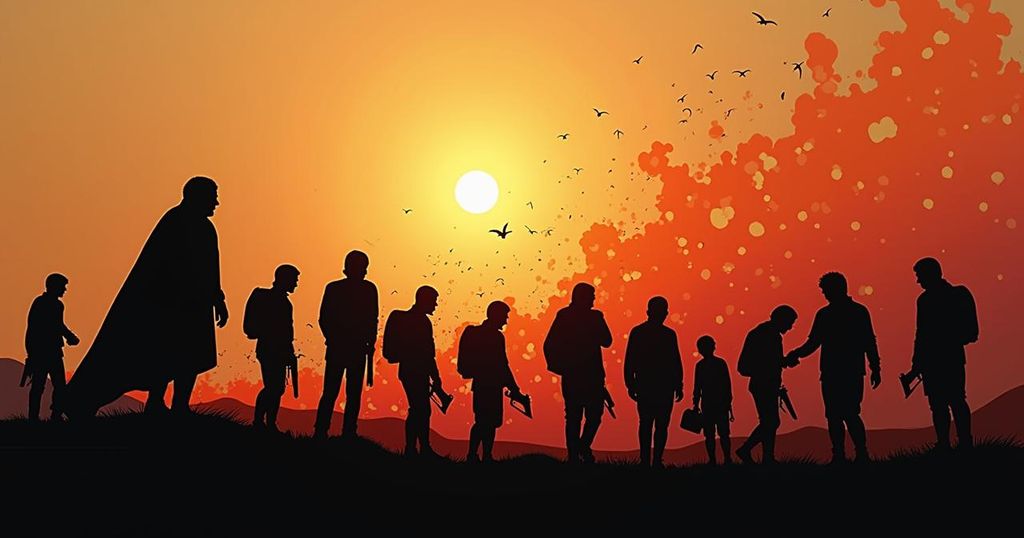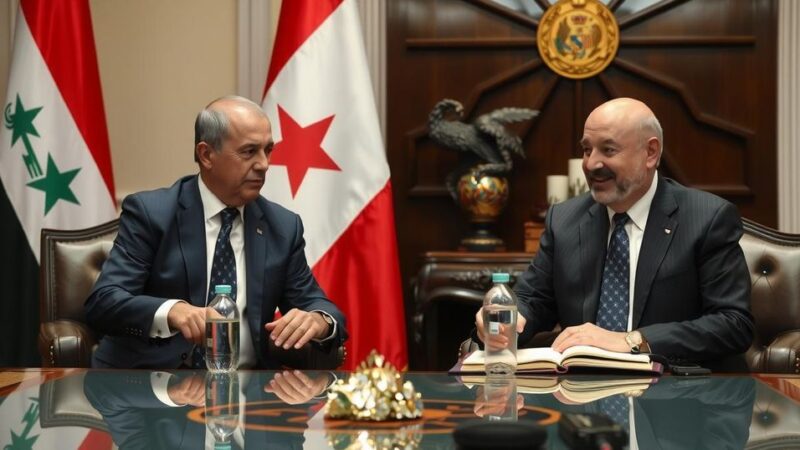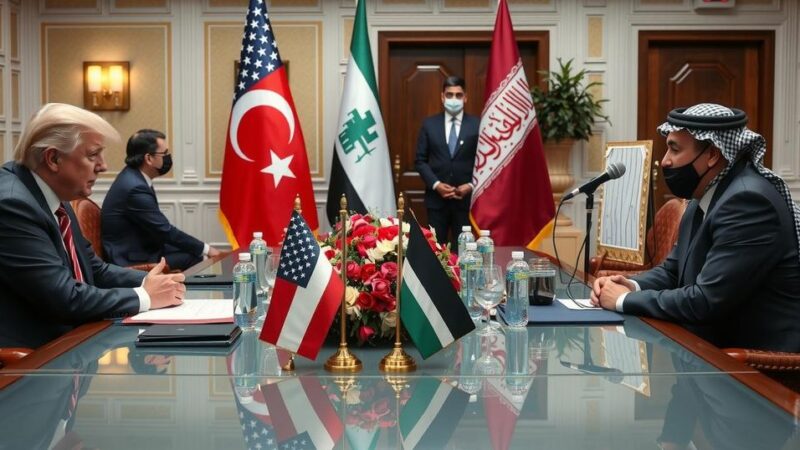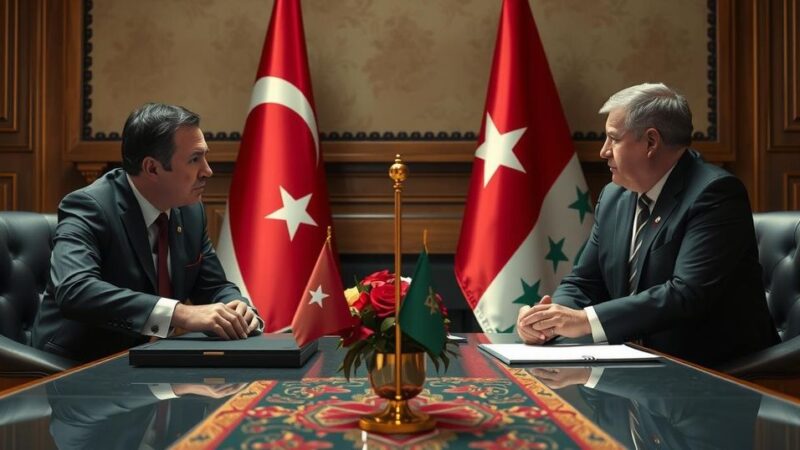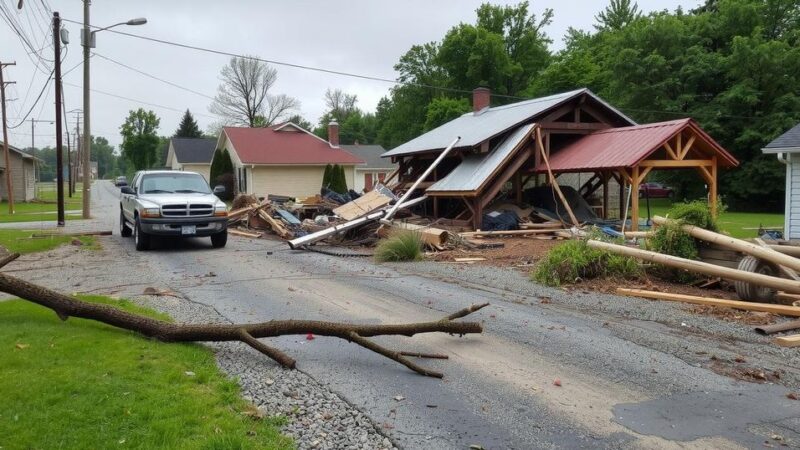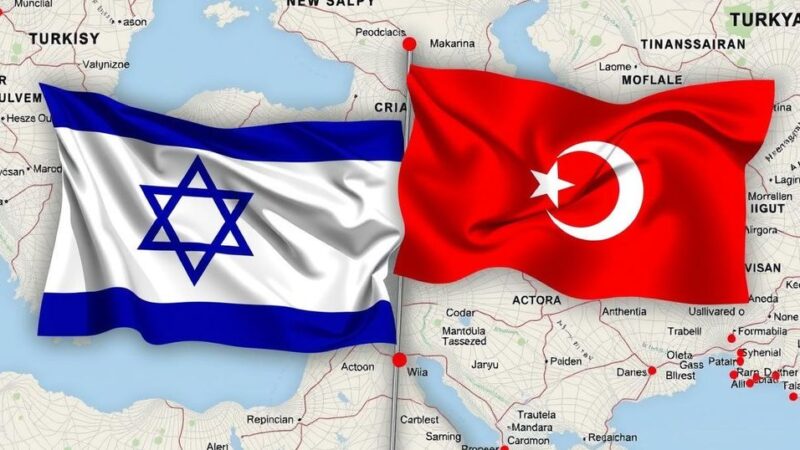Following an unprecedented missile attack on Israel by the IRGC, a divided response emerged in Iran, balancing jubilation in the streets with fears of escalating conflict. While the government pushed for public support through state-sponsored celebrations, many citizens expressed anxiety over the possibility of retaliatory strikes endangering their lives. Humor also emerged as a coping mechanism, even as dissent against the regime’s actions was noted.
In the wake of a missile attack on Israel by the Islamic Revolutionary Guard Corps (IRGC), a complex tapestry of emotions emerged among Iranians. On the evening of the assault, spontaneous celebrations erupted in several Iranian cities. Many citizens expressed jubilance at the attacks, reflecting a narrative of pride and defiance. State-sanctioned messages urged citizens to partake in rallies lauding the military actions, which were broadcasted across Iranian television and accompanied by fireworks and celebratory music in honor of the armed forces and Hezbollah. As footage aired, Iranian media celebrated the missile impacts, with broadcaster Amirhossein Tahmasebi viewing the strikes as a kind of performance art. In contrast to prior strategic caution exhibited by President Masoud Pezeshkian’s administration, the missile strikes indicated a decisive stance by Iran’s leadership, emphasizing the resilience of Hezbollah and reinforcement of the so-called “axis of resistance.” This unified front from Iran’s state apparatus bolstered hopes of deterrence against Israeli actions. While state propaganda capitalized on the apparent success of the missile strikes, concerns regarding an escalating military confrontation lingered. Many Iranians expressed anxiety over the potential risk of conflict spilling into their lives, particularly in light of recent casualties in Lebanon and Gaza caused by Israeli military actions. Individuals, such as a fearful resident of Tehran, voiced their worries of imminent strikes, reflecting the broader public trepidation regarding a protracted conflict. Simultaneously, social media emerged as an outlet for Iranian citizens to express a blend of fear and humor about their situation, showcasing a culture of resilience in the face of threats. Jokes about living under the shadow of missile attacks became prevalent, indicating a coping mechanism among citizens grappling with uncertainty. However, a faction within Iran, opposed to the existing regime, has leveraged this moment to express support for Israel, drawing scrutiny from authorities amidst a climate of strict information control. The situation remains fluid, with Iranian leaders warning that U.S. and allied military bases could face consequences should they partake in any retaliation against Iran. As the prospect of war looms large, the Iranian populace continues to navigate a landscape marked by jubilation, fear, and a dash of humor in response to escalating regional tensions.
The missile attack on Israel represents a significant escalation in the long-standing conflict between Iran and Israel, particularly following recent hostilities in Lebanon and Gaza. The incident has generated varied responses within Iranian society, as jubilant celebrations manifest alongside deep-seated fears of potential retaliation. The shifting rhetoric of Iranian leadership—previously demonstrating restraint—now reflects a more aggressive posture following perceived provocations from Israel, emphasizing the intricacies of regional power dynamics and the precarious state of peace.
The emotional landscape in Iran following the missile attacks on Israel reveals a society grappling with conflicting feelings of jubilation and fear. While many celebrate the act as a demonstration of strength, significant concerns about impending conflict and its consequences prevail. This dichotomy reflects the complex realities of living under constant threat in a region fraught with tensions and violence, as both state rhetoric and personal sentiments converge in the face of potential war.
Original Source: www.aljazeera.com

